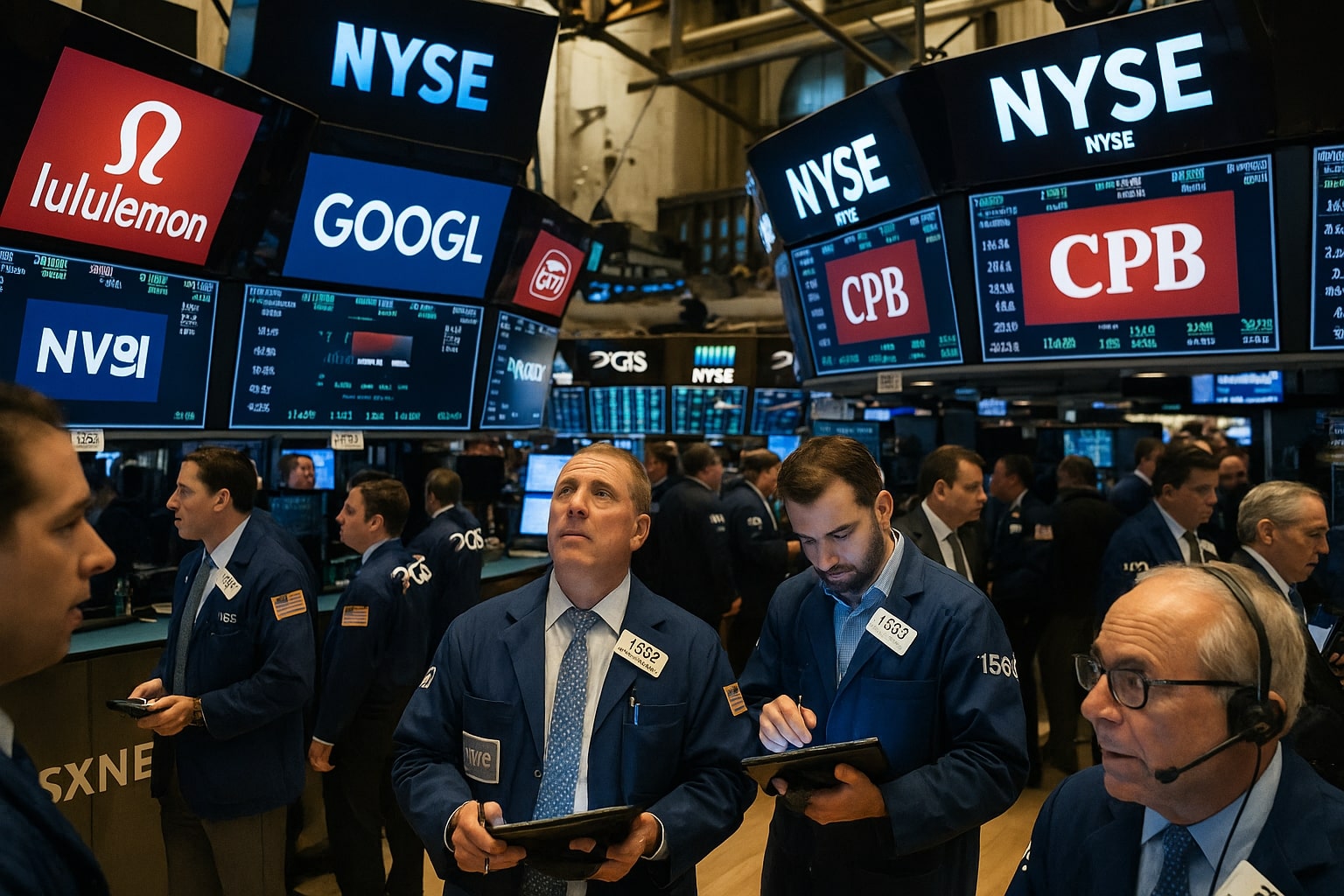U.S. Indices Pull Back After Weak Payrolls Report
The Dow Jones Industrial Average (^DJI) dropped 220 points, or 0.48%, closing at 45,400.86, while the S&P 500 (^GSPC) slipped 0.32% to 6,481.50 and the Nasdaq Composite (^IXIC) finished nearly flat at 21,700.39. The reversal followed a weak August payroll print of just 22,000 new jobs versus expectations of 75,000, with June revised into negative territory. Unemployment ticked up to 4.3%. This data locked in a September rate cut, with futures implying certainty for at least 25 basis points and odds of 50 basis points entering the discussion. Treasury yields fell sharply, with the 10-year at 4.08% and the 2-year down to 3.48%, the lowest since 2022.
Technology Diverges as Broadcom Rallies and Nvidia Stumbles
Broadcom (NASDAQ:AVGO) surged 9.4% after earnings, posting EPS of $1.69 against $1.65 estimates and revenue of $15.59B. AI-linked revenue climbed 63%, with guidance pointing to $17.4B next quarter versus the $17.02B consensus. Collaboration with OpenAI on chip design spurred confidence that Broadcom may gain share against Nvidia (NASDAQ:NVDA), which fell 2.7%. The move sparked speculation of investor rotation into alternative semiconductor leaders. Palantir (NYSE:PLTR) eased 2% as valuation stretched, while Alphabet (NASDAQ:GOOGL) advanced to record highs after escaping a forced breakup in its antitrust ruling, even as it must share data with rivals. Microsoft (NASDAQ:MSFT) traded slightly lower, reflecting broader tech pressure.
Retail and Consumer Names Confront Tariff Damage
Lululemon (NASDAQ:LULU) collapsed 19% after slashing its annual guidance. Management now projects EPS of $12.77–$12.97, down from earlier $14.58–$14.78, with revenue outlook trimmed to $10.85–$11.0B against the prior $11.15–$11.3B range. The company said new tariffs and removal of the de minimis exemption would reduce profits by about $240M. Campbell’s (NYSE:CPB) gained over 3% for the session and nearly 6% on the week after stronger results. Quanex (NYSE:NX) tumbled 13% following weaker earnings and guidance cuts, while Caleres (NYSE:CAL) rebounded 9% after being punished earlier in the week despite mixed results.
Financials and Industrials Struggle With Growth Outlook
JPMorgan Chase (NYSE:JPM) and Wells Fargo (NYSE:WFC) led banking losses, pressured by fears slower economic momentum will weigh on loan growth. Boeing (NYSE:BA) and GE Aerospace (NYSE:GE) also slid as investors braced for a potential slowdown in aircraft demand. American Express (NYSE:AXP) rose after Wells Fargo raised its price target to $375 from $350, highlighting resilience in travel spending and the strength of its premium card refresh.
Russell 2000 Extends Streak Despite Broader Weakness
The Russell 2000 (^RUT) added 0.48% to finish at 2,391.05, extending its winning streak to five weeks. The small-cap benchmark remains up under 7% year-to-date, trailing the S&P 500’s 10% advance. Investors are positioning into smaller caps on expectations that Fed easing could provide relative tailwinds, though weak labor market data raises questions on sustainability.
Corporate Moves and Insider Activity Highlight Tesla and Kenvue
Tesla (NASDAQ:TSLA) gained 2% after disclosing an unprecedented CEO performance award that could deliver Elon Musk more than 423 million shares, tied to $7.5 trillion in shareholder value creation. The package further consolidates Musk’s control. Kenvue (NYSE:KVUE) sank 11% after reports suggested U.S. Health Secretary Robert F. Kennedy Jr. would link Tylenol use during pregnancy to autism, sparking regulatory and reputational concerns.



















